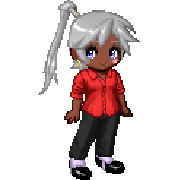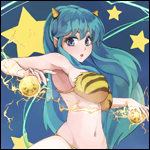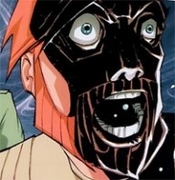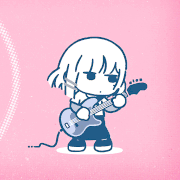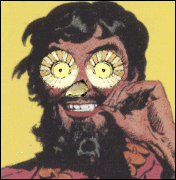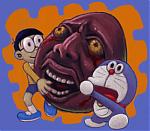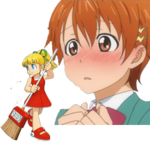|
I personally am not super duper interested in doing meta, autobio readings of works of fiction, but Miyazaki has certainly made it as explicit as possible in his latest two films, so I think it's inevitable. I don't have a like, definitive understanding of his artistic life or anything, but as I understand it, he really was hoping to train a successor for the company and failed to do so (largely through the results of his own actions). Three of the major figures in his life's work were his son Goro, his coworker Yoshifumi Kondo (who died quite young of a heart aneurysm), and his coworker and eventual creative peer, Hideaki Anno. In many ways, The Wind Rises can be read as a film in which Miyazaki uses the life of Jiro Horikoshi as a reflection of the role of the creative artist, imbuing the character with Miyazaki's personality as well as Hideaki Anno's (who voices the main character). The Wind Rises is a condemnation of Japanese imperialism--its corrupting influence on the entire social structure, from the economy to thought policing. But it is also a complex and nuanced critique of the very act of creating. A repeated question in the film is, "Would you rather live in a world with or without the Pyramids?" Horikoshi spends the film in a state of willful ignorance of the consequences of his creative drive. His desire to create a thing of purity and beauty--which he knows could never truly be pure and free during a wartime economy--destroys the life of the woman he loves and eventually will take countless lives, including the lives of the very pilots who would fly his planes. Miyazaki refuses to condemn Horikoshi for chasing after a beautiful dream, but shows the consequences of his actions and impels him narratively to continue living, despite everything. This seems very much in line with Miyazaki's view of his own craft of animation. The ethos of Studio Ghibli (and most of Miyazaki's works before founding the studio) is clearly centered around the idea that animation can serve a moral role in society. But otaku and fanculture led to anime taking on a sort of anime-for-anime's sake, rather than anime as a vehicle for social improvement. This critique of otaku culture is a recurring idea in Hideaki Anno's work as well. So in The Wind Rises, there is this metanarrative element--Horikoshi just wanted to create wings that could as fly as beautifully as the ideal in his mind, but the reality was a weapon of war. Miyazaki and Anno wanted to create anime that would improve the lives of the people who watched them, but animation became a consumerist commodity that lead to reflexive fixation rather than an artistic medium for social change (to describe their view). This thematic thread is continued in The Boy and the Heron, which is also about a creative person whose work gets away from them. The great granduncle character creates a tower in which form and time and space are abstracted. But this tower, with its grand designs of Creation and Imposed Order, was built on the foundation of a world of death and rebirth. The foundation of the tower seems to be the ocean world that Kiriko, the Pelicans, and the Warawara dwell in. It appears to be some sort of samsaric realm where hungry ghosts are able to prepare to be reborn as humans. Which is to say that it is a liminal space based around hunger, deprivation, and want, but also the transformation of these things into new life. The granduncle, having created a space where he can impose order, at some point during the construction of the tower seemed to have imported a great many birds to live inside his world. The titular Heron became something of a magician's assistant. The Pelicans were trapped at the lowest level of the tower--the ocean of hungry ghosts--and were forced to debase themselves and eat Warawara to avoid starving to death. Something similar seemed to happen to the Parakeets. Having lived so long in the tower, and deprived of their natural environment (a pair of them comment, in awe, at the granduncle's tropical garden full of regular parakeets, asking "is this the land of our ancestors?"), the Parakeets evolved into hungry peasants, operating on a mob mentality. They fully embrace the Parakeet King, a strongman who promises them order if they act united to a common purpose. But the granduncle recognizes that his power is fleeting. The entire enterprise of the tower is liable to topple at any moment. Because it is only a construct, a creation that attempts to impose order on the spirit world upon which it has arrived like a colony. Stones arranged in the shape of a tower are the only thing keeping it standing. Each stone is tinged with malice, and balances precariously, and if a single stone's balance is lost, the entire construct will collapse in on itself. This is where the thematic thread of The Wind Rises connects fully to The Boy and the Heron. The creative act stands at the same time for a political act. The political order of Imperial Japan (of human civilization writ large) is composed of many stones, many enterprises. Jiro Horikoshi's engineering firm is one such enterprise. Mahito's father's factory is another such enterprise. Every sector of society is balanced precariously to create this thing we call Order; but every sector is also tainted, and the tower is liable to collapse at any point. Only through great effort can it be kept going, one day at a time. This is also, the granduncle seems to be saying, true about the creative act. His tower is a great creative enterprise, but it was contaminated from the outset. The granduncle goes to great lengths to find pure stones, so that Mahito could build an order that is a truly blank slate. He wants Mahito to inherit this order, but Mahito declines. Mahito gives two reasons. The first is that, as an imperfect human being who is marked by malice, even pure stones could not create a pure order--the malice that exists in his heart would defile his tower. The second reason is that the world Mahito desires--a world where his friends and loved ones are--can be found outside the tower. So he decides to walk away from the tower, into a world of chaos and uncertainty and loss, because it would mean truly living. The Parakeet King, as a strongman, believes that Order is achieved by declaring "this is so" in no uncertain terms. He thinks that Order can be achieved by the sword. So when he tries to hastily assemble the stone blocks, Order falls. The Parakeet King is not necessarily a villain. His species was trapped in an artificial order and was forced to evolve to survive within it. So he believed in order without truly understanding how fragile it always was. When the tower crumbles and the parakeets escape, they return to their true form, which are free little birds. All of this is layered upon the death that predicates the story. Himi accepts her own death, which is why she is able to enter the tower and leave it to live her life out, and this acceptance and fearlessness of a mortal life is the gift she gives to Mahito. Violence, malice, fascism, delusions of grandeur--all of these are cursed attempts to control the shape of the world. There is no way to escape pain and loss, but pain and loss can be transformed by choosing love and family and friendship and freedom. By making this choice to live, you can burn without being afraid of burning. There is no need for a tower to hide away in, unreachable and unmalleable. https://www.youtube.com/watch?v=ZXAsh4z2RuU https://www.youtube.com/watch?v=Un4p-6lzIpI anyway that's my rough reading of the movie after a couple days to digest. Cephas fucked around with this message at 09:08 on Dec 10, 2023 |
|
|
|

|
| # ? Apr 28, 2024 21:22 |
|
thats an excellent read. to the point about Stones, the movie dwells a lot on the contrast between building with wood and building with stone, both architecturally and textually. the movie opens with the gruesome death that can result from building with wood, we are introduced to the manor house through its architectural stone elements, but the places of life within the estate are all wood: the beautiful Japanese entryway and working areas, the shake exterior of the Western residence, the floors and interior walls and doors of the same residence, even in a sense the growing wooded greenery of the estate. this contrasts sharply with the permanence and incompatibility with life of the tower. the use of this visual language keeps going in the spirit world, until eventually mahito just says it: when you build your tower out of stone, it's tainted. if you build your tower out of wood, accept its impermanence and frailty and even hazard, it's pure. and then the tower collapses under the weight of its own Permanence, and its residents go forward with joy to their life in death. yeah i think i've come around on the autobio read
|
|
|
|
I can feel my brain expanding with every post
|
|
|
|
The Boy and the Heron: the lock and key secrecy of the film's premise prior to it's original release make a kind of sense when ya figure, man, they really dodged a bullet avoiding any tiresome misdirection discourse, having ppl flooded w all the cutesy birds in commercials and poo poo and then getting, this. don't like my new mom, school sucks, world is a gently caress *picks up rock* ISEKAI ME, DUDE We're tradin in planes for birds, bird up my bros, let's go! I'm still working what "Miyazaki examining and grappling w his own legacy" really means, personally, as the immense sprawling breatdh of all that is percolating in my head, all these familiar images and tones, places. But what he and his team are doing w them feels entirely new, creating something weird and wild, dark and sometimes quiet, confident and evocative with that quietness, with this quiet and intense protagonist, and is with a wonderful frequency, viscerally strange. Keep Ghibli weird. And then the goofy grannies or the big bird will show up and be goofy. or teethy! The impression or hope is Miyazaki may still be growing better at letting other lights in the studio shine in their own ways across the production. I unno, haven't looked at a hard rundown of staff yet, but there's some poo poo in this I've never seen in a ghibli film before hoo mama I second Cephas that the first act is really something remarkable, tense and sad and scored expertly to picture. The lush forest all around here feels like a foreboding prescence, capital Fitting for a border to the next world. Japan's politics rumbling by at a stern distance. All the wonderful suspense work with windows.The warm human moments. The smokin old folks! The mastery of tone, of mystery! Oh, so now we just runnin out full brigade w a bow shootin mysticalass lookin arrows and poo poo when crazy bird drama starts up. What do you know woman!? Waking up to find his sword was still there but also still busted!? Bites sa dust!? Wario in a heron cap lookin rear end. You know who he looks like, the guy from the pixar, The Incredibles I think, "I think NOT", that guy! Was talkin about Dash I think, basically FAIRY GODPARENTS!ing ya know, that guy This kid wants to isekai so bad I love you never learn what's in the book. That a story was shared is the point. I'm always a sucker for stories that put the incredible effort to get across a characters' pain in so little words. That Mahito softens on Natsuko enough to want to save her felt believable enough(and the Kiriko segments are so charming) to provide a good emotional stakes kickstart for what comes next, and that's good cuz all that great, subtle stuff from before falls away and we go full vintage Terry Gilliam dream logic poo poo. If you're the type to get hung up on whys and hows and huhs, then I dunno, you'll be struck dead or something. This movie will kill you. The way attempting to apply western film-derived analysis to it is made beside the point is kind of exhilirating. It's a fairy tale! The Boy and The Heron will do as it pleases. The parakeets are great, things lighten up a lil, it's great. The dad is just, whew. The way he strides lol bougie swingin dick headass. Mr. Man Of Action over here. MY SON IS A BUDGIE The "Delivery Room" scene is NUTS! HOW Let us all come together and pray for Ghibli's hands. The dedication across these movies to drawing what had to be tricky physical movement to work out visually, let alone draw and animate. Recalling Pazu scrabbling across what may as well have been he outside of the death star w his bare hands in Laputa, you've got to draw two characters switching from one side of a flapping door to the other and later, climbing sideways across what looks like *adjusts glasses* giant anti-pidgeon spikes?? Love that poo poo, love this movie The somewhat abruptness of the final shotstraight into highschool powerpoint blue screen w credits(??lol) left my theatre in a bemused silence. Thought breifly of starting a clap but didn't know if it'd take. Still thought the last few scenes before that were very sweet. Mahito and Himi's last looks to each other before going thru those doors, I just I'm starting to feel some things as I write it out like this. Having been offered a chance at creation once, and moved so greatly by a story meant for him, notMiyazaki is ready to move on beyond this house. The fire doesn't scare him. Pootybutt fucked around with this message at 09:53 on Dec 10, 2023 |
|
|
|
The book he reads is the classic childrens philosophy novel "how do you live," the same title as the film in Japan. Wikipedia notes the book was repressed during ww2 in Japan for encouraging free thinking. Those rad arrows are a real thing too (they're really cool in Total War: Shogun 2 lol) and Wikipedia says they are used to ward off spirits in Shinto belief.
|
|
|
|
Cephas' commentary on the meaning of the tower, and stone and wood, is very interesting. That made me remember that Mahito injures himself with a stone, and it's that wound that he later presents as a representation of his own malice. Perhaps something is being said here about the Pollyanna idea in creativity that you can make something ideal, without recognizing that your own malice from the world is going to leak into it. So perhaps what's going on in the grand uncle's world is reflective of the "animation for social good" mission that you're talking about- He's trying to escape a world that he thinks is too hosed up to accept, and make his own free of the outside world's problems. The issue is is that he is a product of that world, as well as the animals that he forces to live there. Unknowingly they all inherent the karma of our reality despite being completely disconnected from it in space and time. When you talk about permanence of stone versus impermanence of wood, and how Mahito rejects the responsibility of creation because of his own malice It makes me think of what my zen teacher calls "opposite thinking", and how we suffer because of the way we think about the world and evaluate it. The great-grand uncle is living in a artificial fantasy world that he is constantly striving and bargaining to make perfect, which is an arduous and endless task. Meanwhile Mahito Is able to make peace with the fact that he's imperfect and So he doesn't accept the fool's errand of trying to make a self-sustaining perfect world.
|
|
|
|
Because I haven't praised the dub enough, I thought Christian Bale was really fun as Mahito's dad. It didn't feel like anyone was phoning it in. Even Bautista, who was pretty close to his natural voice, brought a good performance. It really felt like GKIDS and the crew at NYAV knew they had a lot to prove because while they've been doing Ghibli for a while, this was their first new Miyazaki.
|
|
|
|
Another positive for me is all of the little old lady animation. Top shelf stuff, 10/10 weird old ladies
|
|
|
|
Pootybutt posted:I'm always a sucker for stories that put the incredible effort to get across a characters' pain in so little words. I can definitely accept that if Miyazaki had a passionate personal message to get across, it's fine and worthwhile that he did that rather than making something that appealed to my sensibilities. Porco Rosso already exists so he's done me a hell of a solid already. I also agree that there is an intense contemplative energy to Mahito That is interesting in the first half, his kurtness, his wordless angry relationship with the heron, The way we see his issues at school play out without dialogue. That's all good stuff told visually. Still though, This movie didn't so much "kill me" as I did find it underwhelming past the first act. I place a lot of importantance on characters and their relationships in fiction, and while there are many interesting philosophical ideas that All of us in the thread are picking up on, I never got all that attached or felt like I had an understanding for any of the relationships. Why does the stepmom hate Mahito? Why does he accept her as his mother? Why doesn't he ever seem affected or interested in the fact that he has a chance to connect with this isolated and preserved instance of his dead mother? I feel like the most developed relationship is between Mahito and the Heron, and even that feels like it resolves in a rushed way I didn't understand. These are all things that I kept waiting on, and in concept at least I was invested in. Because it's the most recent movie I've seen in the theaters, I keep comparing it to Godzilla Minus One, which obviously has much different ambitions than Heron, but I got so sucked into that movie because I understood the relationships between all the characters and I cared about how the events of the story affected said relationships. I can't say the same for this one I don't know, this all reminds me of discussions I've had with my friends about Dark Souls 2 and how partially the negativity we hoist onto it is because of its loaded name- being a sequel to something that we have high praise for. My friend will say after all of his criticisms that it's "still better than most games released that year," and I have a similar sentiment towards this movie. I'm not going to call it bad because that would be severely misleading, it's not bad, it's much more well-made than nearly everything else in theaters right now. Still though, it just didn't land for me. It is fun and interesting to analyze it with all of you though!
|
|
|
|
Gonna need to see it a second time to catch all the stuff you guys are pointing out A friend pointed out how water was used for symbolism, drowning in grief, still during peace, crashing waves during turmoil
|
|
|
|
Steve Yun posted:Gonna need to see it a second time to catch all the stuff you guys are pointing out That facsimile of his mother that the Heron created which turns into water when Mahito touches it
|
|
|
|
Yeah, definitely gonna get this on Blu-ray I think the textual story is a little hard to follow because the movie seems so preoccupied with subtext but boy there’s so much to dig into
|
|
|
|
Steve Yun posted:Yeah, definitely gonna get this on Blu-ray I think you hit the nail on the head here, and will probably be the main reason why everyone's mileage may vary.
|
|
|
|
in addition to the wood and stone contrasts, i think building with metal comes up a lot as a counterpoint. fire water and wind are of course used a bunch, but less as architecture more as natural elements of the world or nonarchitecural human creations. the two metal items i noticed the most were pigeon spikes (on the Western residence and in the parade scene) and the fighter canopies. the nail head of the homemade arrow felt like an intentional echo of a pigeon spike. wood topped with metal has to be saying something
|
|
|
|
Just got out of the theater. I'll have to mull it over some more. While I certainly enjoyed it I'm not sure if it even cracks top 5 Miyazaki films for me. As an exercise in metaphor and raw filmmaking it's second to none, but count me among those who greatly enjoyed the contemplative pace of the first act over the rest of the movie. Also because I just saw Godzilla Minus One it was kind of funny to me how the film ends with Mahito saying that two years after the war ended they went back to Tokyo... right as Minus-One Goji is about to shitwreck Ginza EDIT: Having thought on it for a couple more hours I was rather let down by most of the character interactions past the first act. A lot of the quiet introspection that spoke where words weren't necessary felt like it was missing from the rest of the film particularly Mahito's really scant interactions with Himi. I never quite felt that their relationship was fully developed. Arc Hammer fucked around with this message at 04:18 on Dec 11, 2023 |
|
|
|
Tea Party Crasher posted:I can definitely accept that if Miyazaki had a passionate personal message to get across, it's fine and worthwhile that he did that rather than making something that appealed to my sensibilities. Porco Rosso already exists so he's done me a hell of a solid already. I think some of your questions have answers I could get from the film, but even those felt a little too lightly sketched to have proper impact. His aunt hated him because he never accepted her. He was a living symbol that she would never be anything other than a pale substitute for her sister. Oh, her husband said he loved her, they might have a child together, but his real flesh and blood is her sister's son, the boy who refuses to accept her as a mother, even when she reached out. He, in turn, eventually accepts her because he recognizes how much the rejection hurt her, and because he's finally been able to settle things with his mother. I compared it to Minus 1 because they're both WWII era and it was the last film I saw, and Minus One was astoundingly good, but the film that felt like it was the most interesting comparison for me was Suzume. Shinkai got the whole "Next Miyazaki" rep, and lived up to it better than most (even if he did that by rejecting the Miyazaki aesthetic and making films that were distinctly his), which makes it kind of funny they both made movies this year about young people using time travel to cope with the loss of their mothers during a national tragedy, while also dealing with being raised by an aunt. Suzume, though, felt more centered, even if it took a while for the center to show. Meanwhile, there were aspects of this (like the father's role) that felt incomplete. Too focused on to be background, but not central enough to satisfy. Gotta say, Mahito is one of the least inquisitive characters I've seen in these things. As I was watching, I thought he was either really observant quick on the uptake, or really thick, and either way he was shockingly quiet about what he thought about things. Turned out to be category 1, but it still made for an unusual watch. Glad I saw it, and I think it's a good movie, but... well, I'll want more time for it to settle, but the odd structure of the film meant that a lot didn't have the impact that it could have.
|
|
|
|
Having watched the film, letting it digest for several hours, and having read some reviews and thoughts on the film, I think in the end it's an okay film. It definitely feels like this film was made for Miyazaki himself, in order for him to convey his feelings about his legacy and inevitable death. The strong points of the film are in its symbolism and metatextual meaning, as well as the traditional high quality animation you get with a Ghibli film. However, if you aren't aren't keenly aware of Miyazaki's history and legacy, as well as what he's trying to convey with the film, it really does fall on the weaker side of a traditional Ghibli story. The first, second, and final third all feel like separate movies haphazardly mis-mashed together, and a lot of it operates on dream-like logic that gets handwaved away because "it's magic". A lot of stuff like "what actually is the Grey Heron Goblin man" and "why did Natsuko need to go to the tower to give birth" and "why didn't the great grand-uncle just directly meet with Mahito" just doesn't get explained, and the more you think on it, the more frustrating the story as a whole gets. Not everything needs answers, but there wasn't enough here to leave the watcher satisfied-we just use fantastical moments to bridge scene to scene, seemingly without much contribution to the greater narrative themes of the story, metatexual or otherwise. Similarly, most of the character writing was severely lacking-the Grey haron basically immediately becomes mahito's friend after fixing his beak hole, even though he just threatened him 5 seconds beforehand/we aren't given a good reason why Mahito feels so determined to rescue Natsuko, other than the narrative demands it despite it not meshing with his emotions in the first third of the film/the whole "gets bullied at school for being a rich kid leading to him trying to brain himself with a rock" doesn't get enough of an explanation other than "I have malice" at the end of the film. Overall, it's a very underbaked film that I feel is more concerned with conveying Miyazaki's messy emotions and frustrations than telling an actual coherent and satisfying narrative. And while I think there are plenty of anime stories that can tell these kinds of stories effectively, I don't believe that this form of storytelling is Miyazaki's strongsuit as a writer or director. I might recommend this film to people who love Studio Ghibli films and have some knowledge of the creator Miyazaki, but I probably wouldn't recommend it to anyone else.
|
|
|
|
Mahito hit himself with a rock partially bc he knew he was the son of a rich man and could pin it on the bullies as an excuse for not needing to go back to school. The reason he hits himself so hard is because he blames himself for not being able to save his mother.
|
|
|
|
https://www.tiktok.com/embed/7310409145377770794
|
|
|
|
A lot of times on-camera actors get cast into dubbing just for their name and it turns out they suck at voice acting, but Robert Pattinson is not one of them https://www.tiktok.com/embed/7310987371305045291
|
|
|
|
Julias posted:A lot of stuff like "what actually is the Grey Heron Goblin man" and "why did Natsuko need to go to the tower to give birth" and "why didn't the great grand-uncle just directly meet with Mahito" These parts seem pretty clear-cut to me. The grand uncle wanted a successor, right? He called Natsuko to the tower so she can give birth there, making a natural heir to the world that the tower master created. If they were born in that world, they'd be a tabula rasa for him to mold into the ideal successor and have no reason or desire to return to the human world (or so he hopes, presumably.) Mahito is there as a spare in case the baby plan doesn't work out, or possibly to maintain the world until the baby comes of age. The Grey Heron's real mission seems to have been to distract Mahito and waste his time with a snipe hunt disguised as a hero's journey until the grand uncle was ready to involve him in his plans, presumably after the baby was born. Mahito was supposed to hear "Your mother's really alive" and go, "Gee whiz, really? Let's go find her, magical guide!!" but he immediately called the Heron on his bullshit from step one. That's how I read the situation, at least.
|
|
|
|
Strong post Cephas, I really like the insight and ideas you presented to how they map onto the visual story of the film. I liked it in that I enjoy a Miyazaki/Ghibli product on a basic level. The film was gorgeous, the soundtrack was wonderful, and it created a lot of fantastic images for my brain to soak up. Plot/story wise I felt like it was kinda thin and a retread of other themes he's tackled before. I don't want to call anything he or the studio does "lazy", but this film felt a lot to me like he's running out of steam creatively and revisited visuals/sets/ideas he's had before and kinda mashed them all together. I saw a lot of Totoro/Spirited Away/Howl's Moving Castle in terms of character design and visual elements that I would have almost expected more from. As my friend I saw it with commented "film is about 80% vibes and 20% other stuff to connect the vibes". Most of the film felt like he had some visual ideas he wanted to apply and used this as a vehicle to glide from one to another. Not the strongest Ghibli film, I think I would agree with whoever said it would be hard to recommend not knowing a fair bit about him as an artist and his prior works, I think its a bit dense with what its doing for a lay person to walk in and pick up on it all. e: I can buy the revisiting of visuals was intentional, but it did not resonate or add to the film for me. Maybe thats on my expectations, but it just didn't land the same as other Ghibli films did from an awe and wonder perspective, at least for me, partially because of the revisited pieces. The Notorious ZSB fucked around with this message at 23:29 on Dec 12, 2023 |
|
|
|
|
Reusing stuff from previous films was very intentional and, I think, a way to say “this is about Ghibli, our past and future”
|
|
|
|
I've been turning the movie over in my mind a lot since seeing it on Sunday, and the more I think about it the more I see the parakeets as an extended metaphor for the fans/viewers. Thoughts?
|
|
|
|
Owl at Home posted:I've been turning the movie over in my mind a lot since seeing it on Sunday, and the more I think about it the more I see the parakeets as an extended metaphor for the fans/viewers. Thoughts? Well you could certainly call the parakeets "consumers"
|
|
|
|
Owl at Home posted:I've been turning the movie over in my mind a lot since seeing it on Sunday, and the more I think about it the more I see the parakeets as an extended metaphor for the fans/viewers. Thoughts? Yeah id been mulling this over too, esp in light of the posts about how Miyazaki wondered if anime was living up to being the force for social good he wanted it to be  The parakeets are brought into this magical world of imagination, are captive in it, become molded by the tower master. But they just want the end product and have no respect for the work that goes into it (the block stacking) I doubt this is about all fans, just the otaku he seems to have concerns about
|
|
|
|
A lot of those posts are fake, he never said "Anime was a mistake"
|
|
|
|
Waffleman_ posted:A lot of those posts are fake, he never said "Anime was a mistake" Sure sure sure  But the real quote is pretty illuminating about his feelings in this movie Although he’s talking about industry colleagues and not fans here, the core problem is an obsession with fantasy and separation from reality Steve Yun fucked around with this message at 20:42 on Dec 13, 2023 |
|
|
|
I saw The Boy and the Heron over the weekend, and I really liked it. This one is definitely going to be a rewatch for me, because I clearly didn't pickup on some of the stuff Cephas and others hit on. It may be because I saw it in the theater, but I really loved it and I thought the dub was superb.
|
|
|
|
https://twitter.com/JEBermanator/status/1734345041798377495?s=20
|
|
|
|
Except the babies.
|
|
|
|
Boy and Heron was quite the journey.
|
|
|
|
Steve Yun posted:A lot of times on-camera actors get cast into dubbing just for their name and it turns out they suck at voice acting, but Robert Pattinson is not one of them Just saw it in sub, and yea that dub voice is perfect. Its literally the same ruff tone and delivery as the original voice, you would think the same person did the sub and dub.
|
|
|
|
I watched Nausicaä and Mononoke this week. Both are great of course but I feel that Mononoke works better as a film using the same ideas. Even though it's the longer of the two movies I think it makes better use of its runtime. I'd like to read the Nausicaä graphic novel because the setting and tale are amazing. I just want more than what made it into the movie. As others have said, the way Hideaki Anno animated the giant warrior was intense and appropriately pitiful. Nothing glorious about this allegory of the atom bomb. The synthesizers and drum machines in the soundtrack are dope. Mononoke hits me a lot harder thanks to the unbelievably serene score and the gravity with which the violence is rendered. Ashitaka is also perfectly heroic, like Nausicaä. Every bad thing that happens to him comes from defending others and self sacrifice. He's ready to leave his village forever at a moment's notice to protect them and the music of that sequence knocks me out. The dub has Billy Bob Thornton as Jigo the Monk and I think he does a great job reinforcing that duplicitous charm in him.
|
|
|
|
The Nausicaa manga is wonderful and is several times longer than the movie goes into interesting places
|
|
|
|
Steve Yun posted:The Nausicaa manga is wonderful and is several times longer than the movie goes into interesting places It also has a very different role for Kushana, with her taking a co-protagonist position by the end, rather than being the primary antagonist. (She even gets some beats that Anno would reference for Asuka.)
|
|
|
|
Been thinking about Princess Mononoke again and I think that what stands out to me the most about the film after the music is just how hard it goes on its presentation to truly embrace the term "Epic". Plenty of things can be considered epic, depending on how you use the word, but it absolutely feels to me like one of the few animated films that really goes for epic in the sense of the grand hollywood epics of the 50s and 60s in a way I can't really say I've seen outside of The Prince of Egypt. It's hard to put into words but there's this undercurrent through the whole film of presenting every moment as the most important thing ever, that you are witness to a spectacle. The Boy and the Heron will flex and show you some of the most mind boggling and complex animation you will ever see for the most mundane of actions and it looks incredible, but it doesn't carry that same intent as mononoke, if that makes sense. It treats its incredible animation more as a statement of fact, i.e. "this is the way this looks, so of course we'd make it look as good as possible" while Mononoke goes hard on that aforementioned sense of "everything you are seeing is meant to astound you and embrace the scale of all existence". I dunno if that makes sense or if my reading is off, but from a presentation standpoint that was my takeaway and a big reason why Princess Mononoke sticks with me so much. It wants to be noticed and it will scream to the heavens to make sure it is seen. Arc Hammer fucked around with this message at 07:09 on Dec 26, 2023 |
|
|
|
So before I forget, here's my tier list: And not to sound too corny, but big thanks to the OP for making this thread. I'd only ever seen Castle of Cagliostro, so this thread was a great excuse to see them all. I can't wait for The Boy and the Heron comes out on blu-ray so I can rewatch them (I know I didn't give The Wind Rises a fair shake).
|
|
|
|
Forgot to make this post weeks ago but I managed to finish the watches and had The Boy and the Heron the last day it was in my area. Before this thread, I had never seen 'The Wind Rises' and watched that before heading to the theater. The Wind Rises TWR isn't a bad movie but it felt the least "ghibli" to me as the only really fantastical elements were the dream sequences. Beyond that it was a very straightforward biographical film, lots of time skipping without any signposts but it never felt jarring or confusing either. I know nothing about the actual life of Jiro Horikishi to compare to the film and I don't have a whole lot else to say. Decent movie but I don't feel bad I never gave it a shot back when it first premiered. The Boy and the Heron. I have to echo that the movie is visually stunning. It had all the "ghibli-isms" that were otherwise lacking in TWR. The scene where Mahito enters the Manor and sees the old crones all huddled around the father's suitcase gave me instant flashes of the Daruma heads from Spirited away. That's when I knew we were back to business. As for the story to borrow a word from Julius it felt underbaked. I know the movie isn't an adaptation but it has that same kind of feel that Howl's Moving Castle does. Where you get that idea there's whole chapters of stuff that got left out or the movie is missing internal monologues from other characters. Like I didn't understand why the Aunt went into the tower. It can't be because the Great Uncle wanted her child to be a successor because he knew his time was limited and there's no implied time dilation that would have sped up the maturation of a baby that still wasn't even born. And it's not like Mahito's presence rekindled some old curiosity in her, at least not from what I remember in the film. I also don't know what the point was for the Old maid to come along if she was going to be replaced by her past self immediately and relegated to a doll that the story forgets about until it's time to wrap things up. I don't even recall it being said that the maid went missing in the past during that one year, just the mother was spirited away Mahito gets this as well. The first act he's very engaging but once we get to the adventure He's never truly tempted to sacrifice anything to get his mother back or restrain her past self. He acknowledges the Heron's trap as such and for the rest of the movie he is more concerned about finding his aunt and leaving. He's also never interested in the power of the tower nor the alien rock so the Great Uncle feels even more detached from the story when he poses a quandary the MC is not going to engage with. The kid is just this unflinching force of good. It's also weird the story would outright tell us that the mother went to the tower but left a year later. Since like with the aunt the time fuckery isn't really present I couldn't even pretend that Mahito or the Uncle would do anything to keep the young mother bound to the tower. I'll definitely give it a rewatch when it's out on blu-ray. And I think analysis like the one from Cephas are good for understanding the metaphysics of the setting and some of the subtext. But the story itself is very straightforward and I think some of the spiritual components are more window dressing than actually important to the overall moral and message. Thanks for this challenge OP. Below is my tier list.  Maybe in a few more years we'll have another Miyazaki directed film to add to it. Happy New Years everyone!
|
|
|
|

|
| # ? Apr 28, 2024 21:22 |
|
I watched Whisper of the Heart and The Cat Returns , the latter being a lighthearted side adventure featuring the cats from the former. Whisper of the Heart wasn't directed by Miyazaki but it was written and storyboarded by him. I gotta say, I don't know why people don't talk about this one as much. I thought it was incredible. I was really expecting it to be a fantastical adventure but what I got instead was a purely grounded coming of age romance (The preview image for the movie on HBO shows the main character flying with The Baron, a fancy suit wearing cat.) The song Country Roads plays a big part in the movie, and I really don't like that song, but here it's used so well. Also this movie has the original chill beats to relax and study to girl. The Cat Returns is a cute little movie. Not even feature length. Tim Curry plays the King of Cats in the dub and he's hilariously grotesque. I can see why this was only really on home video in the states given it's shortness. Still it's a very high quality animated film.
|
|
|





